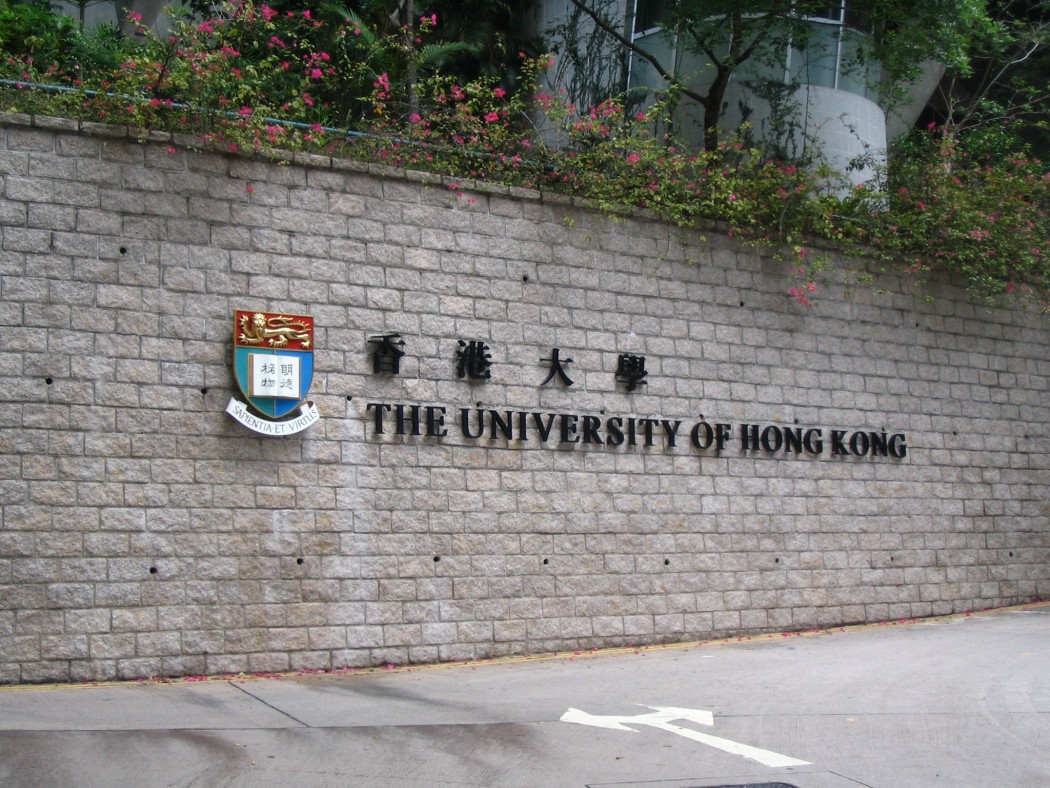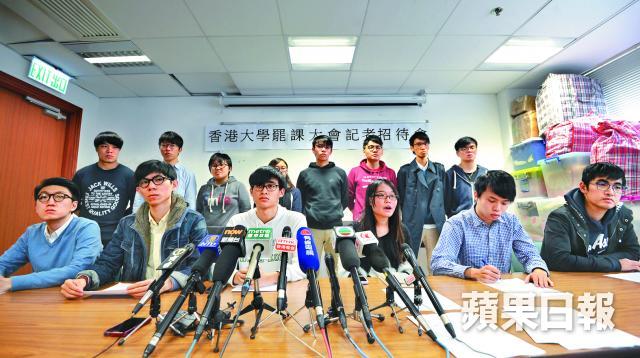Students at the University of Hong Kong (HKU) plan to boycott their classes for one week, starting from Wednesday, to demand a reform in the governing Council’s structure.
A class boycott committee formed by 15 students announced on Monday that the action will last till January 26, when a Council meeting is due to be held. However, it is not clear how many will join the action.
The planned boycott comes after Chief Executive Leung Chun-ying’s controversial appointment of former top education official Arthur Li Kwok-cheung as the council’s new chairman at the end of last year.

Arthur Li was one of the Council members who rejected liberal law scholar Johannes Chan Man-mun’s appointment to the pro-vice-chancellorship, sparking a long-running dispute with many staff, students and alumni.
The committee said the boycott would only end if the school forms a panel to review the governance structure laid out in the University of Hong Kong Ordinance, to respond to the concerns of students that political power has been abused to interfere with the university’s institutional autonomy.
Their other demands are: the Chief Executive should not be the university’s Chancellor by default; at least half of the Council members should be appointed from inside the university; the Council members currently appointed by the Chief Executive should instead be appointed by the Council itself.

Yvonne Leung Lai-kwok, a member of the committee, said the meeting on January 26 would be “great timing for the school to respond.”
She said that students have employed multiple means, such as sit-in protests, demonstrations, referenda, and interventions in a Council meeting, but all their actions seemed to have been in vain.
Committee member Wong Chun-kit said students are not only targeting Li in their demands since “Li is only a puppet of the government,” and that the action should focus on reforms of the current system.
Johannes Chan said that he understood the students’ action, but urged them to consider whether a class boycott was the best method, and that it should not last too long in order to avoid affecting their studies.
Dr William Cheung Sing-wai, chairman of the HKU Academic Staff Association, told Apple Daily that although he supports the action, the association cannot join a class boycott unless a labour dispute was involved. However, he did not rule out the possibility of staff members providing additional lessons and video recordings of lessons.

A HKU spokesperson told the newspaper that classes will be held as usual during the boycott, adding that although both students and teachers have freedom of speech, they have to respect other people’s opinions and freedoms, while taking responsibility for their own actions.
HKU vice-chancellor Peter Mathieson said last week that students would not be punished for joining a class boycott, but there could be consequences if they missed out on teaching.
A spokesperson for the government said that it opposes HKU students and staff members using class boycotts or more radical action to fight for their demands, that it would affect the normal operation of the school, daily teaching and research work, hurting students, and that it may have a negative impact on the long term development and competitiveness of the school.
Chief Executive Leung Chun-ying added on Tuesday that the government has “the responsibility and the power” in the operations of universities.
Previously, two class boycott have been organised at HKU, the first during the anti-national education curriculum protest in 2012, and the second opposing the decision on the method for the Chief Executive election, made by the National People’s Congress Standing Committee in 2014.
